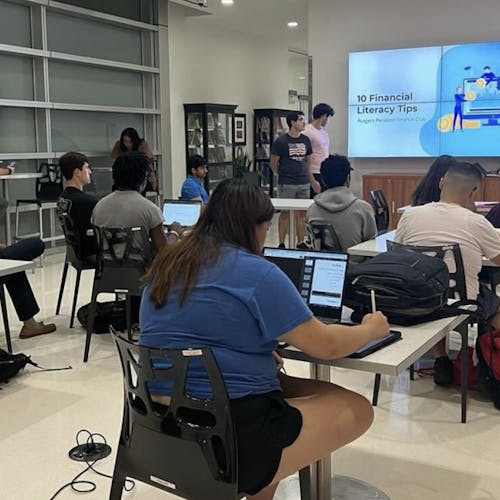Select health majors to receive scholarships after surprise tuition hike

No one likes a tuition increase, but several incoming students will be more at ease this year as Rutgers plans to offer scholarships for select health majors following a surprising tuition hike for the fall.
Gwendolyn Mahon, dean of Rutgers School of Health Related Professions (SHRP), said despite efforts to advise incoming students of the tuition increases for four of SHRP’s 42 health-related programs — diagnostic medical sonography, cardiac sonography, vascular sonography and nuclear medicine — efforts to communicate information were insufficient.
“Consequently, we decided to provide all incoming students in these four programs with scholarship aid sufficient to bring their tuition this year in line with that being paid by returning students, whose tuition rose by 2.3 percent this fall,” Mahon said.
Mahon noted how officials at SHRP tried to advise incoming students during both the interview process earlier this year and at orientation this summer of the tuition increases.
The 60 percent tuition hike took students by surprise, according to nj.com, where tuition for several majors were set to increase from $345 to $552 per credit this fall for in-state student. Out-of-state tuition was set to increase from $518 to $828 per credit.
The scholarships are a one-time only offer available to those incoming students affected by the tuition increase, Mahon said. The scholarship aid is funded by the school.
“The purpose of the scholarship aid was solely to address the concern related to sufficient communication of the new tuition rate for these four programs,” Mahon said.
While some programs at SHRP have historically been priced below similar professional programs, Mahon said there were several reasons for the significant increase in tuition.
These reasons included requirements for specialized technical and medical equipment, clinical training and a low faculty to student ratio-- all expensive programs to run, said Mahon.
The SHRP programs are offered jointly with several colleges across the state where students complete the general education component of their degree. Then, if accepted, the student enters Rutgers SHRP to receive the professional education component of their degree, Mahon said.
“During their education at the partner college they pay the tuition rate of that college, and when they transfer to SHRP, they pay the SHRP professional program rate,” Mahon said.
Upon successful graduation, Mahon said the students are prepared to take either the national registry certification exam or the state licensure exam and obtain employment as health professionals.
SHRP majors were not the only ones to get hit with a tuition increase, as Rutgers undergraduate tuition and fees went up 2.3 percent under a plan approved by the state university’s board over the summer, as well as an additional 3.2 percent increase in institutional student aid, according to Rutgers Today,
The Board of Governors was also required to address a 3.7 percent reduction in direct state operating funds for Rutgers, as well as recently settled employee union contracts and other mandatory cost increases, according to Rutgers Today. The 2.3 percent tuition increase is less than the University’s average increase over the past four years, where tuition and fees increased from 2.4 percent to 2.6 percent.
“In the face of significant financial challenges for public colleges and universities nationwide, I am proud that Rutgers can continue to offer high-quality academic programs while keeping tuition and fee increases to a minimum,” University President Robert L. Barchi said. “I commend our faculty and staff at Rutgers for their ongoing commitment to excellence in teaching, research and service to the people of New Jersey.”



